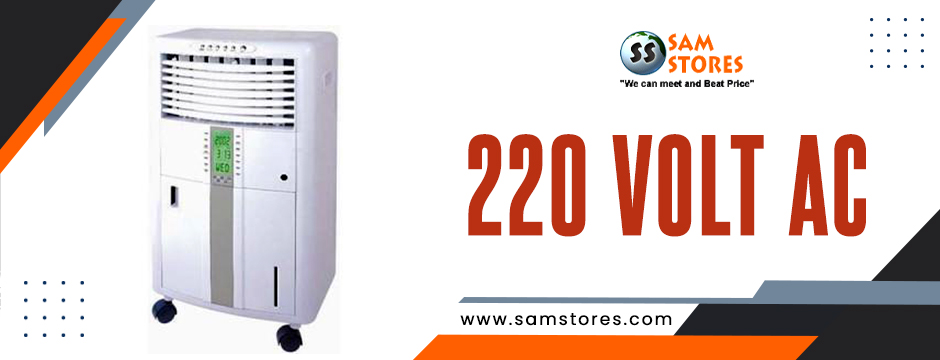In the realm of electrical systems, the term “220 volt AC” holds significant importance. This voltage standard, commonly used for powering various appliances and devices, plays a crucial role in our daily lives. In this guide, we’ll delve into the fundamentals of 220 volt AC, exploring its applications, advantages, and considerations for safe usage.
Understanding 220 Volt AC: The Basics
Voltage Specification:
220 volt AC refers to an electrical system with a voltage of 220 volts in an alternating current (AC) configuration. In contrast to direct current (DC), where the electric charge flows in one direction, AC periodically reverses direction. This alternating flow of electricity is a fundamental aspect of 220 volt AC.
Common Applications:
Devices and appliances that require higher power demands often operate on 220 volt AC. These may include household appliances like electric stoves, clothes dryers, and air conditioners. Additionally, power tools, industrial machinery, and certain types of lighting systems are designed to function optimally with 220 volts.
Wiring Configuration:
The wiring configuration for 220 volt AC systems involves two hot wires and a ground wire. The hot wires carry the alternating current, oscillating between positive and negative phases. The ground wire serves as a safety measure, providing a path for electric current to safely dissipate in case of a malfunction.
Advantages of 220 Volt AC:
1. Increased Power Capacity:
One of the primary advantages of 220 volt AC is its ability to deliver higher power capacity compared to lower voltage systems. This makes it suitable for appliances and equipment with greater energy requirements, enhancing their efficiency and performance.
2. Efficient Power Transmission:
The use of higher voltage, such as 220 volts, reduces the current flow required to deliver a specific amount of power. Lower current results in less resistance and heat generation in the wiring, contributing to more efficient power transmission over longer distances.
3. Compatibility with Heavy-Duty Appliances:
Many heavy-duty appliances and industrial machinery are designed to operate on 220 volts. This standardization allows for compatibility across a range of devices, simplifying electrical systems in homes, businesses, and industrial settings.
Considerations for Safe Usage:
1. Professional Installation:
When dealing with electrical systems, especially those operating at higher voltages, it is crucial to seek professional installation. Certified electricians can ensure that the wiring, outlets, and appliances are configured correctly, minimizing the risk of electrical hazards.
2. Adequate Circuit Protection:
Installing appropriate circuit protection, such as circuit breakers or fuses, is essential for safeguarding the electrical system. These protective measures help prevent overloads and short circuits, ensuring the safety of both the system and connected devices.
3. Proper Outlet Usage:
Devices and appliances designed for 220 volts must be plugged into outlets specifically configured for this voltage. Using incompatible outlets may result in damage to the equipment and pose safety risks.
4. Regular Maintenance:
Periodic inspection and maintenance of electrical systems are critical for identifying potential issues before they escalate. Loose connections, damaged wiring, or outdated components should be addressed promptly to maintain the integrity of the 220 volt AC system.
Conclusion: Harnessing the Power of 220 Volt AC
In the realm of electrical engineering, 220 volt AC stands as a powerful standard that fuels the operation of various appliances and equipment. Its higher voltage capacity, efficient power transmission, and compatibility with heavy-duty devices make it a cornerstone in both residential and industrial electrical systems. However, it’s crucial to approach the usage of 220 volt AC with a commitment to safety and adherence to professional installation practices. By understanding its applications, advantages, and safety considerations, individuals can unlock the full potential of 220 volt AC, ensuring a reliable and efficient power supply for their diverse electrical needs.Whether you’re contemplating the installation of a new appliance or seeking to understand the electrical systems in your environment, embracing the knowledge of 220 volt AC empowers you to navigate the world of electricity with confidence and safety.
